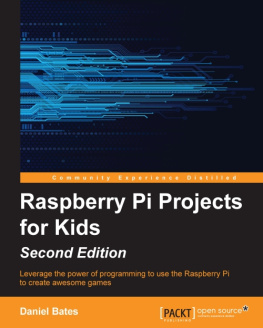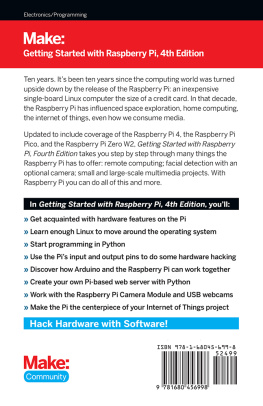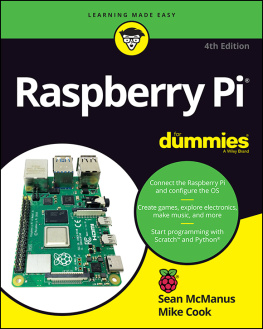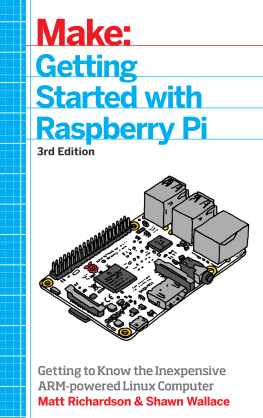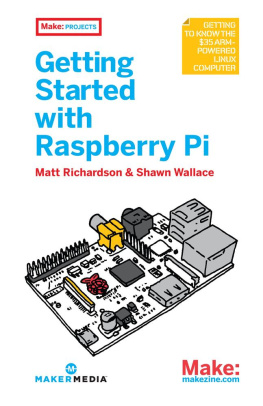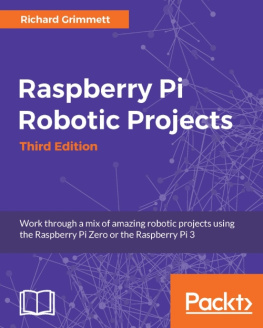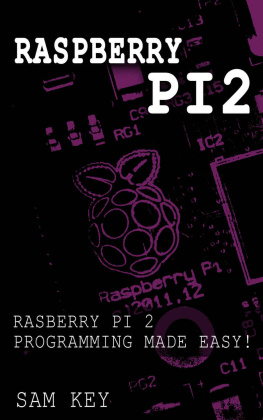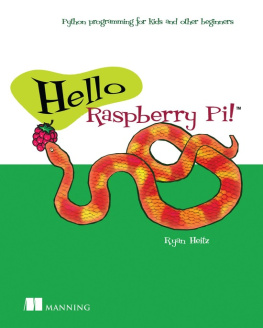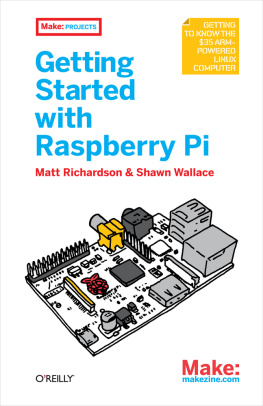About the Reviewers
Ed Baker graduated with a BSc in physics from Imperial College, London, in 2007 and somehow ended up working in the Entomology Department of the Natural History Museum shortly after. His work focuses on how technology, both hardware and software, can improve the way research is performed, from field data collection to final publication. Outside the technology world, he is a specialist on stick insects, cockroaches, and grasshoppers.
Recently, his work has focused on automated acoustic and environmental monitoring, protocols for sensor networks, and starting the biodiversity technology company http://www.infocology.co.uk.
Ed's first book, provisionally titled Arduino for Biologists , will be published in 2015 with Pelagic Publishing.
I would like to thank Philippa for believing that the writing and 'tinkering' would bring reward in the end.
Colin Deady 's career in IT started in the late 1990s, when he discovered software testing ("they want me to break it?"), having previously fallen in love with computers when his parents brought him and his brother a ZX81 and ZX Spectrum+ in the 1980s and later an Amiga 1200 in the early 1990s. With over 15 years of experience in testing, he works as a Technical Test Manager, emphasizing the benefits of test automation and extolling the virtues of agile using Kanban and Behavior-Driven Development to great effect: define behaviors, then test early, test often. He combines BDD with a fix early, fix often approach that he terms Zero Known Defects.
Colin was one of the technical reviewers for Tim Cox's excellent Raspberry Pi Cookbook for Python Programmers , by Packt Publishing, and has written several articles for The MagPi, a community magazine for the Raspberry Pi. He has also reviewed and edited many more, building up extensive knowledge on this tiny platform.
He currently runs a blog related to all things Raspberry Pi, which can be found at www.rasptut.co.uk.
Ian McAlpine was first introduced to computers when he used his school's Research Machines RML 380Z and his physics teacher's Compukit UK101. This was followed by a Sinclair ZX81 and then a BBC Micro Model A, which he still has to this day. The interest he has in computers resulted in an MEng degree in electronic systems engineering from Aston University and an MSc in information technology from the University of Liverpool. Ian is currently a product expert in the Business Intelligence and Analytics Competence Center at SAP Labs in Vancouver, Canada.
The introduction of the Raspberry Pi rekindled his desire to "tinker" but also provided him with an opportunity to give back to the community. Ian is also a very active volunteer, who works for The MagPi, a monthly magazine for the Raspberry Pi community, which you can read online or download for free from www.themagpi.com. He also holds an amateur radio license (callsign VE7FTO) and is a communications volunteer for his local community emergency management office. He was a technical reviewer for Raspberry Pi Cookbook for Python Programmers , by Packt Publishing .
I would like to thank my darling wife, Louise, and my awesome kids, Emily and Molly, who've allowed me to disappear into my office and have, consequently, trained our dog to fetch me!
www.PacktPub.com
Support files, eBooks, discount offers, and more
For support files and downloads related to your book, please visit www.PacktPub.com.
Did you know that Packt offers eBook versions of every book published, with PDF and ePub files available? You can upgrade to the eBook version at > for more details.
At www.PacktPub.com, you can also read a collection of free technical articles, sign up for a range of free newsletters and receive exclusive discounts and offers on Packt books and eBooks.
https://www2.packtpub.com/books/subscription/packtlib
Do you need instant solutions to your IT questions? PacktLib is Packt's online digital book library. Here, you can search, access, and read Packt's entire library of books.
Why subscribe?
- Fully searchable across every book published by Packt
- Copy and paste, print, and bookmark content
- On demand and accessible via a web browser
Free access for Packt account holders
If you have an account with Packt at www.PacktPub.com, you can use this to access PacktLib today and view 9 entirely free books. Simply use your login credentials for immediate access.
Preface
The Raspberry Pi is a credit card-sized computer designed to make computing accessible to all. With the trend towards making computers easier and easier to use, the art of programming has been in decline. Programming is a powerful tool that lets us tell the computer exactly what we want to do. In much the same way as we use a hammer or screwdriver to help us with a physical task, we can use programming to help us with a mental task. The Raspberry Pi exposes programming software to make it as easy as possible to get started.

